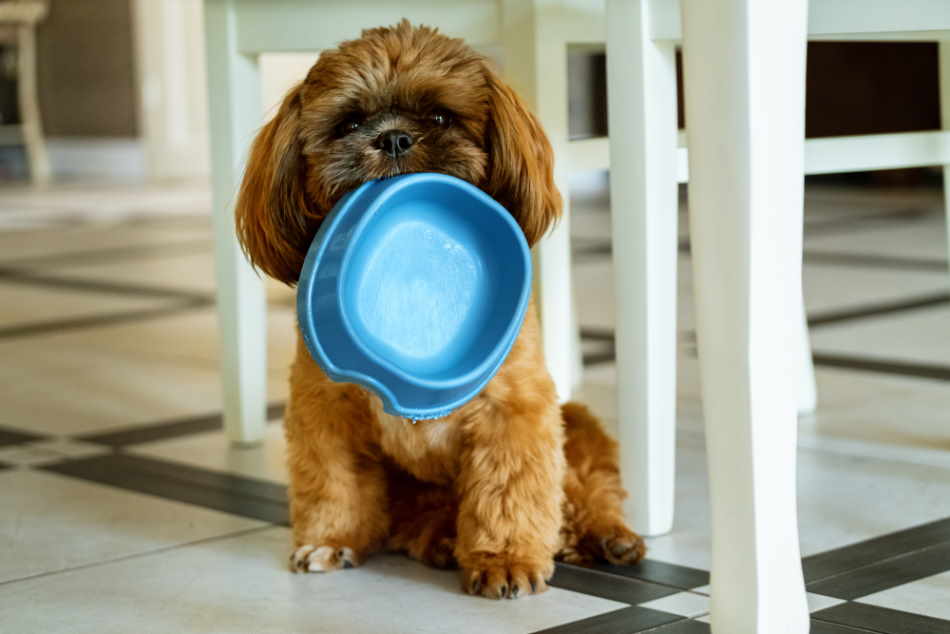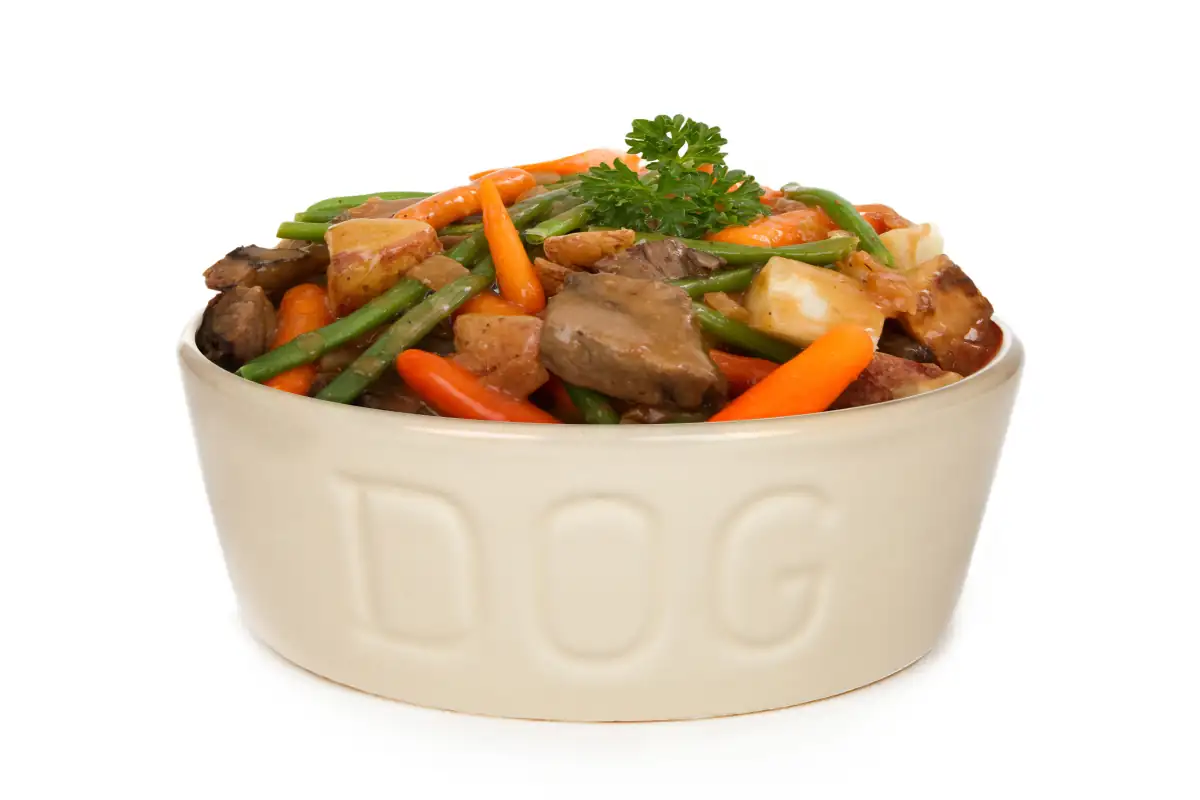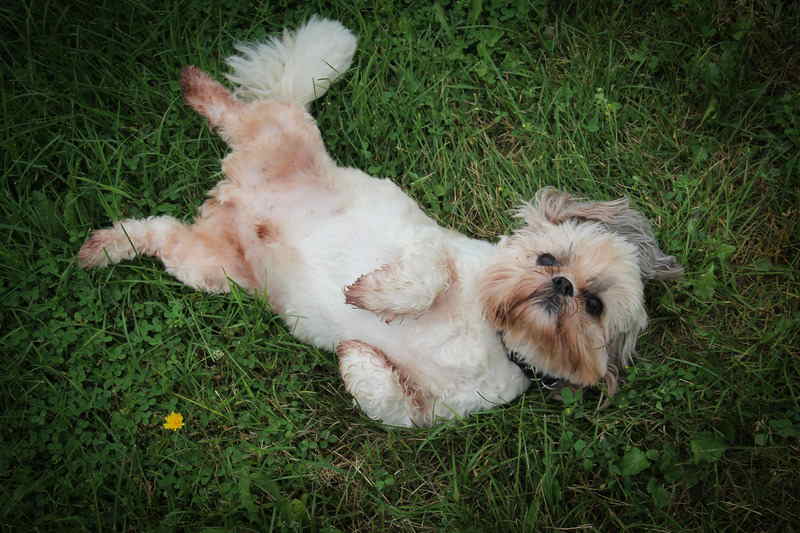- Home
- Shih Tzu diet
Unlock the Best Nutrition for Your Shih Tzu: The Ultimate Guide to the Best Food for Your FurBaby
By Everything Shih Tzu December 28, 2022
This post may contain affiliate links. Read privacy & disclosure policy for info

Shih Tzus are small but mighty, and to keep them healthy and happy, their diet and nutrition needs to be top-notch.
A balanced diet for a Shih Tzu should include protein, carbohydrates, essential fatty acids, and vitamins and minerals.
With the right food, you can ensure your fur-baby stays happy and healthy for many years.
This article will cover everything you need to know about the best food for your Shih Tzu, including nutritional requirements, benefits, and more.
So, keep reading to unlock the best nutrition for your Shih Tzu!
The Benefits of Feeding Your Shih Tzu the Nutritional Diet
When it comes to your pup's health, providing a balanced diet is fundamental.
Feeding your Shih Tzu a balanced diet high in nutrition will help ensure that they get all the nutrients they need to stay healthy and happy.
Here are just some of the benefits of feeding your dog, a well-balanced diet:
- helps boost their immune system
- improve their digestion
- provide them with the energy they need to stay active and playful
- keep them looking and feeling their best
- helping them live a longer, healthier life
Now that you've learned about some of the advantages of a nutritionally balanced diet for your dog, the next step is to learn about the nutritional requirements.
Understanding Your Shih Tzu's Nutritional Requirements
When it comes to understanding your pup's nutritional requirements, there are a few things to consider.
First, your Shih Tzu's age is important.
Puppies need more calories and nutrients than adult Shih Tzus, so choosing a food specifically designed for puppies is necessary.
Second, you need to consider your pup's activity level.
If your dog is very active, they may need more calories than a dog that spends most of their time lounging around.
Finally, you need to consider any health issues your pup may have.
If your dog has a health condition, you must talk to your vet about the best food for your pup's specific needs.
So, what are the nutritional requirements for dogs?
The nutritional requirements for dogs vary by age and breed, but in general, a balanced diet should include proteins, carbohydrates, fats, vitamins, minerals, and water.
- Proteins are essential for muscle growth and maintenance.
- Carbohydrates provide energy and help the body absorb vitamins and minerals.
- Fats provide energy and help keep the coat healthy.
- Vitamins help maintain healthy vision, skin, bones, and teeth.
- Minerals are essential for metabolism and hormone balance.
- Finally, water is vital for keeping the body hydrated.
Now that you are aware of the essential nutrients for your dog's diet, you will have a better understanding of how to create a balanced diet.
Creating a Balanced Diet for Your Shih Tzu

When creating a balanced diet for your Shih Tzu, it's important to include all the essential nutrients they need to stay healthy and active.
A good place to start is with a high-quality dry food made specifically for small breeds. This kind of food usually has the right amounts of proteins, carbs, fats, vitamins, minerals, and water.
Additionally, you can supplement their diet with fresh fruits and vegetables as well as lean proteins such as boiled chicken or fish.
If you want to provide the even better nutrition for your dog, you could also look for a food that is low in fat, high in protein, and contains no fillers or artificial ingredients.
Also, to make sure your dog receives all the nutrients they require, look for a food that contains essential vitamins and minerals.

When preparing homemade dog food, lean meats such as chicken, turkey, and fish are excellent sources of protein.
For carbohydrates, whole grains, starchy vegetables, and fruits are all good choices.
Essential fatty acids can be found in foods like salmon, walnuts, and flaxseed.
Vitamins and minerals, such as calcium and magnesium, can be found in numerous foods, including eggs, dairy products, and leafy greens.
If you don't have the time or energy to cook for your dog, consider having fresh food delivered to your door by companies such as The Farmers Dog.
Finally, always make sure your dog always has access to clean, fresh water so they can stay hydrated.
Choosing the Best Dog Food for Your Shih Tzu

When determining which dog food is best for your Shih Tzu, it’s essential to consider their age, size, and activity level.
Puppies and senior dogs may require different types of food than adult dogs.
Additionally, smaller breeds may need smaller kibble sizes to make sure they can chew and digest the food properly.
When selecting a dry food, look for one that is specifically designed for small breeds and contains quality ingredients like whole grains, lean proteins and healthy fats.
Also, it is very important that you learn to read the label to make sure it has all the essential nutrients your Shih Tzu needs to stay healthy.
The Best Food for Shih Tzu: Dry, Canned, and Raw
When it comes to the best food for a Shih Tzu, there is no one-size-fits-all answer.
Every dog is unique and has different dietary needs.
The best diet for your Shih Tzu will depend on their age, activity level, health status and any allergies they may have.
Generally, the three most common types of food for a Shih Tzu are dry kibble, canned food and raw diets.
Dry Kibble:
Dry kibble is a convenient and cost-effective option for feeding your Shih Tzu.
Look for high quality kibble that contains natural ingredients with no artificial preservatives or flavorings.
Make sure to check the guaranteed analysis on the label to ensure that it contains enough protein and fat for your pup’s needs.
Canned Food:
Canned food can be a great alternative to dry kibble as it typically contains more moisture which can be beneficial for your pup’s health.
When choosing canned foods look for ones that are made with natural ingredients and contain no artificial preservatives or flavors.
Additionally, make sure to check the guaranteed analysis on the label to make sure it meets your pup’s nutritional needs.
Raw Diet:
A raw diet consists of uncooked meats, vegetables, fruits and other whole foods that are not processed or heated above 118°F (48°C).
This type of diet can be beneficial as it mimics what dogs would eat in the wild but can also come with risks if not done properly such as bacteria contamination or nutritional deficiencies so make sure to do plenty of research before starting this type of diet with your pup.
Overall, choosing the best food for your Shih Tzu comes down to finding one that meets their individual needs while also being safe and nutritious.
All three types of food (dry kibble, canned food and raw diets) can provide benefits but it's also important to know how much to feed your Shih Tzu.
How Much Food Should a Shih Tzu Eat Per Day
When it comes to feeding your Shih Tzu, providing the ideal amount of food is key.
The amount of food your dog needs will depend on how old they are, how active they are, and how healthy they are.
Generally speaking, a Shih Tzu should eat between 1/2 to 1 cup of food per day.
However, it's always a good idea to consult with your vet if you are still unsure of the exact amount of food for pup needs each day.
Supplements and Treats for Your Shih Tzu
A healthy diet is essential for your Shih Tzu, but you can also give them treats and supplements to round out their diet.
The skin and coat of your dog can be kept in good condition with the help of supplements like omega-3 fatty acids.
Treats, such as freeze-dried meat or fruit, are another option for rewarding your canine companion when training.
Just be sure to limit your intake of treats to a reasonable amount.
Dog Food and Allergies

It may surprise you to learn that some dog foods can actually make trigger an allergic reaction in dogs.
Some dog foods can cause allergies in your dog because they contain ingredients that are not compatible with their digestive system.
Some of the most common allergens in dog food are beef, chicken, dairy, eggs, wheat, grain and soy.
Your pet may have an allergic reaction to some or even all of these ingredients, which can lead to itchy skin and scratching, stomach problems, and other health issues.
If your pet has a known allergy to any of these ingredients or if you suspect they may have an allergy, it is important to read the label of any dog food you give them to ensure that it does not contain any of these allergens.
Talk to your vet about putting your pet on a hypoallergenic diet if you think it might have a food allergy.
10 Tips for Feeding Your Shih Tzu
A healthy, well-balanced diet is important for your dog's health, but there are a few other to keep in mind.
1. Make sure you feed your dog at the same time every day. This will help them maintain regular eating habits and digestion.
2. Feed your dog a high-quality diet that is specifically designed for their age, size, and activity level.
3. Always provide fresh water for your dog to drink throughout the day.
4. Don't leave food out all day; offer fresh food and only enough for one sitting. This helps to reduce overeating and weight gain, as well as preventing them from eating food that has gone bad.
5. Divide meals into two or three smaller meals throughout the day instead of one large meal; this will help them digest their food better and avoid bloating or gas issues.
6. Avoid feeding your dog table scraps as these can be unhealthy and cause digestive issues or weight gain if fed in excess amounts or too frequently
7. Avoid feeding your dog foods that are high in sugar, salt, or fat; these ingredients can be unhealthy for dogs over time if consumed in excess amounts
8. If you’re considering adding treats to your dog’s diet, make sure they are low-calorie, healthy options like fruits and vegetables
9. Feed your dog in a quiet, stress-free environment.
10. Monitor your dog’s eating habits; if they are not eating enough or seem to have less energy than usual, consult with your veterinarian
In addition to these ten important tips, make sure you always keep up with regular checkups with your veterinarian to ensure that all of your dog's dietary needs are being met.
Lastly, be sure you stay informed about food recalls from the FDA website (https://www.fda.gov/animal-veterinary/safety-health/recalls-withdrawals), as there have been many recently due to contamination issues throughout the United States!
Bottom Line

Providing your Shih Tzu with the best nutrition is vital for their health and happiness.
With the right food, you can ensure your pup is getting all the vitamins, minerals, and nutrients they need.
The best way to ensure that your pet is getting the nutrients they need is to read the label of any dog food you feed them.
When choosing a commercial dog food, look for one that is specifically formulated for small-breed dogs like Shih Tzus, as they have different nutritional requirements than larger breeds.
Look for high-quality ingredients, avoid fillers and check the guaranteed analysis for protein, fat and fiber levels.
If your pet has any known allergies, make sure to avoid foods with those ingredients as well.
If you still are unsure what to feed your dog, consult with your veterinarian.
Your vet can help you determine which type of food and ingredients are best suited for your pup’s individual needs.
Additionally, you should also research various brands of dog foods and read reviews from other pet owners to get an idea of what works best for them.
With a bit of research and care, you can make sure that your furry friend is getting the nutrition they need!
IMPORTANT DISCLAIMER: The information contained in this article is for general educational purposes only and should not be used as a substitute for professional veterinary advice. It is important to consult with a licensed veterinarian for personalized dietary recommendations based on a specific dog's individual health status and needs.
- Home
- Shih Tzu diet



